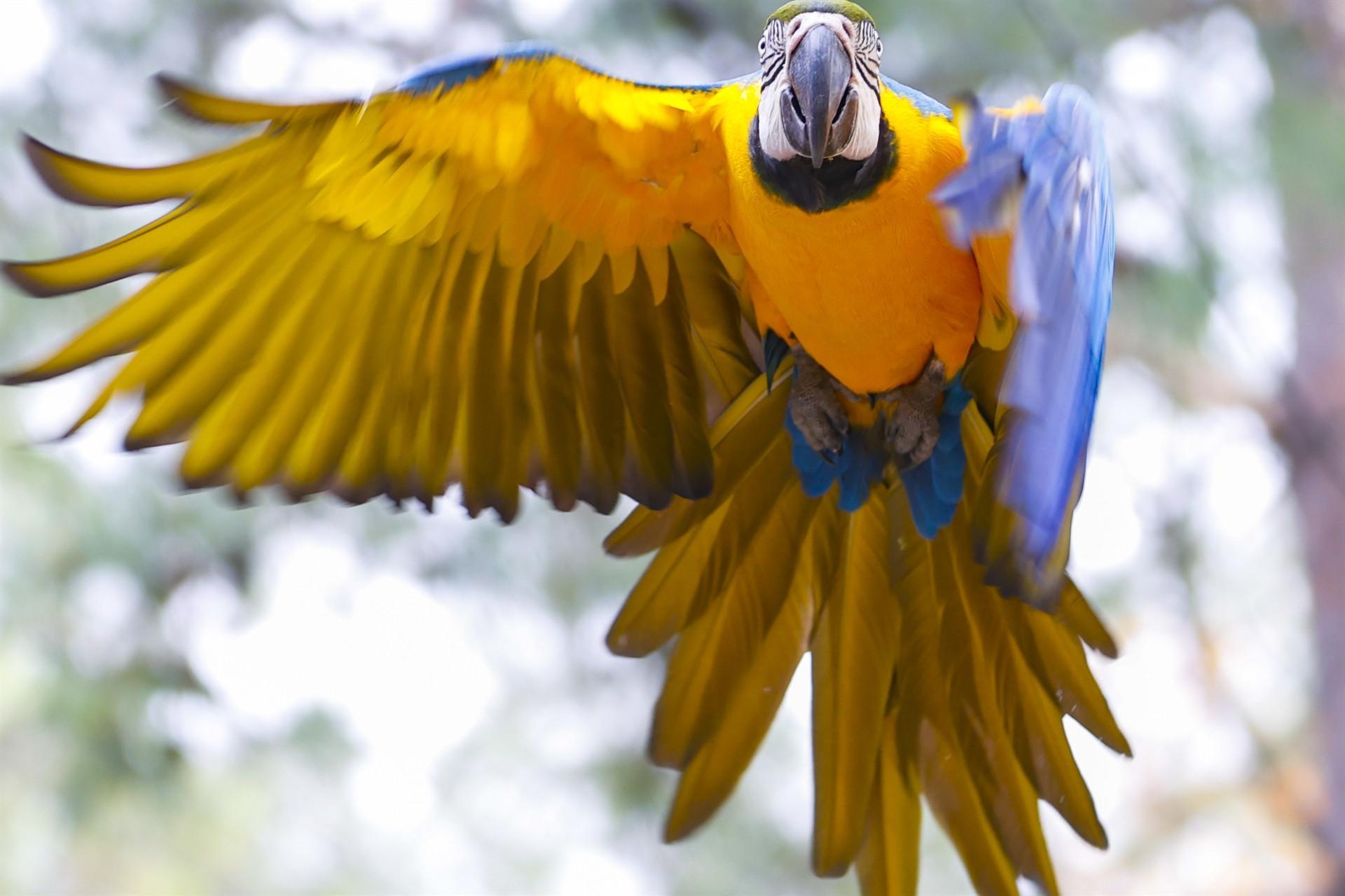
The zoo, which hosted nearly 400,000 visitors last year despite the COVID-19 pandemic, is going through a most peaceful period following the measures taken against the virus
With winter in full force and meteorologists warning against adverse cold weather ahead, Turkish zoos have installed special heating systems for animals who belong to countries having a warm climate.
Special practices have been implemented in Bursa Zoo during the ongoing cold winter days, especially for animals such as giraffe, lemur, tapir and rhinoceros, whose natural habitats are warm countries. These animals are housed and fed in cold-resistant and heated indoor areas.
Warm nests have also been prepared with special heating methods for some species living in the Antalya Metropolitan Municipality Zoo and Nature Park.
A total of 849 animals of 136 species live in the Bursa Zoo, which is a member of the European Association of Zoos and Aquaria (EAZA). Animals, whose natural habitats are warm countries, are fed with fresh fruits with high nutritional value and kept indoors on cold winter days.
Lemurs, one of the inhabitants of the zoo, are fed fresh bananas on cold winter days. Fed from the hands of their caregivers, lemurs are kept indoors. African penguins feed on sardines. Around 19 African penguins in the zoo who eat sardines in their menus prepared in accordance with their natural environment also eat from the hands of their caregivers.
As meteorology officials warned about the agricultural frost in the southern province of Antalya, warm nests have been prepared by using special heating methods for the cold-sensitive species sheltering in the Antalya Metropolitan Municipality Zoo and Nature Park. It is the largest zoo in the Mediterranean region as it is home to more than 1,000 animals of 27 species.
Monkeys, lemurs and the reptiles in the park are protected from cold with the help of heating stoves, floor heating and infrared lamps. Reptile and primate species that are sensitive to cold are also given high-energy foods.
Zeki Cihangir, a veterinarian at the Antalya Metropolitan Municipality Zoo and Nature Park, said that the weather has cooled rapidly in the last few days and that they pay special attention to cold-sensitive species.
“We are taking special cold measures. Our reptile house has a floor heating system. At the same time, we provide heating with the help of infrared lamps. The cabins of our animals should be stable at 22 to 24 degrees. We enable them to live within the temperature levels in their living spaces. Likewise, we heat the shelters of lemurs with the help of infrared lamps. They protect themselves from the cold by coming under the lamp at the time of feeding and sleeping. Monkeys, chimpanzees and baboons are also creatures that don’t like cold weather. For them, we have installed electric stove heating systems in their winter shelter areas,” Cihangir said.